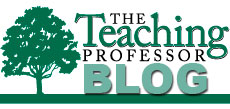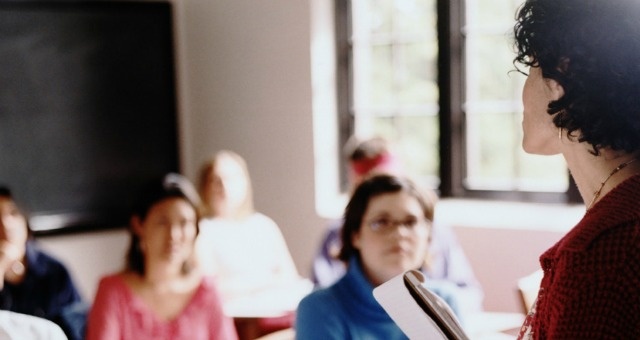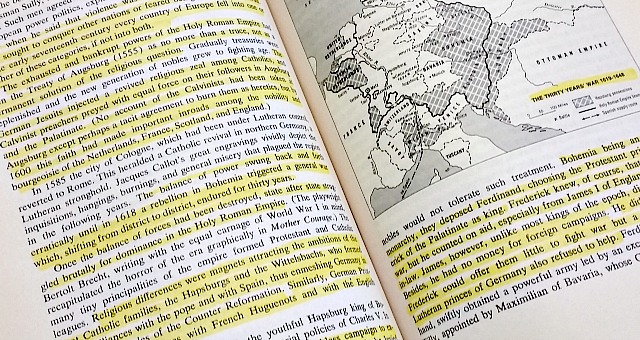CURRENT ARTICLE • June 03
OTHER RECENT ARTICLES
An email query about teaching personas reminded me how much I haven’t figured out about our teaching identities. I’m still struggling with very basic questions and wondered if a conversation here might not get us all thinking more about how we present ourselves as teachers.
Read More ›A lot of students are in love with their highlighters, especially those bright, fluorescent-colored ones. They use them to highlight course materials, sometimes underlining whole pages of text. When I first saw a text so fluorescent that it all but glowed, I wondered why in the world somebody would spend that much time underlining. Later I understood it was really a cry for help. “I can’t tell what’s important, so I’ll just highlight the entire section so I don’t miss something.” Highlighting can be a useful way of interacting with text, but it needs to be done in a thoughtful way.
Read More ›At this point in my career, I am expected to mentor others. It’s something I enjoy and it has never felt like an obligation. However, I haven’t given much thought to exactly what mentoring is, how best to do it, and why it’s a worthwhile endeavor. Mentoring is one of those higher education topics that was trendy for a while, but I no longer see it addressed much in current literature. That omission doesn't diminish its potential to greatly enhance both teaching and learning, and a revisit of the topic might remind us of its many values.
Read More ›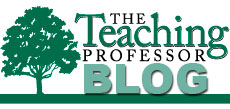 Cheating continues to be a pervasive problem in college courses. Institutions have policies designed to prevent it and faculty employ a range of strategies that aim to catch those who do. And still the problem persists. A study at a university in Australia, where it is the students’ responsibility to read and follow the academic integrity policy, found that only 50% of the students said they read the policy. Nonetheless, 80% rated their understanding of plagiarism 7 or above on an 11-point scale. However, when asked to identify a set of behaviors associated with academic dishonesty, their answers indicated confusion and misunderstanding of cheating, plagiarism, and other forms of collusion that occur in courses and on campus.
Cheating continues to be a pervasive problem in college courses. Institutions have policies designed to prevent it and faculty employ a range of strategies that aim to catch those who do. And still the problem persists. A study at a university in Australia, where it is the students’ responsibility to read and follow the academic integrity policy, found that only 50% of the students said they read the policy. Nonetheless, 80% rated their understanding of plagiarism 7 or above on an 11-point scale. However, when asked to identify a set of behaviors associated with academic dishonesty, their answers indicated confusion and misunderstanding of cheating, plagiarism, and other forms of collusion that occur in courses and on campus.
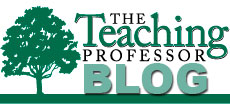 We know a lot about teaching and learning, but our knowledge is scattered across three separate domains.
We know a lot about teaching and learning, but our knowledge is scattered across three separate domains.
 The design of assignments, that is, the actions required to complete them, shapes the learning that results. We know this, but do we make the most of what we know when we design and select assignments?
The design of assignments, that is, the actions required to complete them, shapes the learning that results. We know this, but do we make the most of what we know when we design and select assignments?
 I've been asked to give a talk that explores some of the top teaching-learning lessons learned in the past 15 years. It’s a good reflection exercise that also brings up those lessons we haven’t learned or aren't yet finished learning.
I've been asked to give a talk that explores some of the top teaching-learning lessons learned in the past 15 years. It’s a good reflection exercise that also brings up those lessons we haven’t learned or aren't yet finished learning.
 "From the way students act at the beginning of a class we can tell a great deal about the profs who taught them previously." It's an insight offered by David Johnson and Roger Johnson, the well-known cooperative learning researchers and advocates.
"From the way students act at the beginning of a class we can tell a great deal about the profs who taught them previously." It's an insight offered by David Johnson and Roger Johnson, the well-known cooperative learning researchers and advocates.


